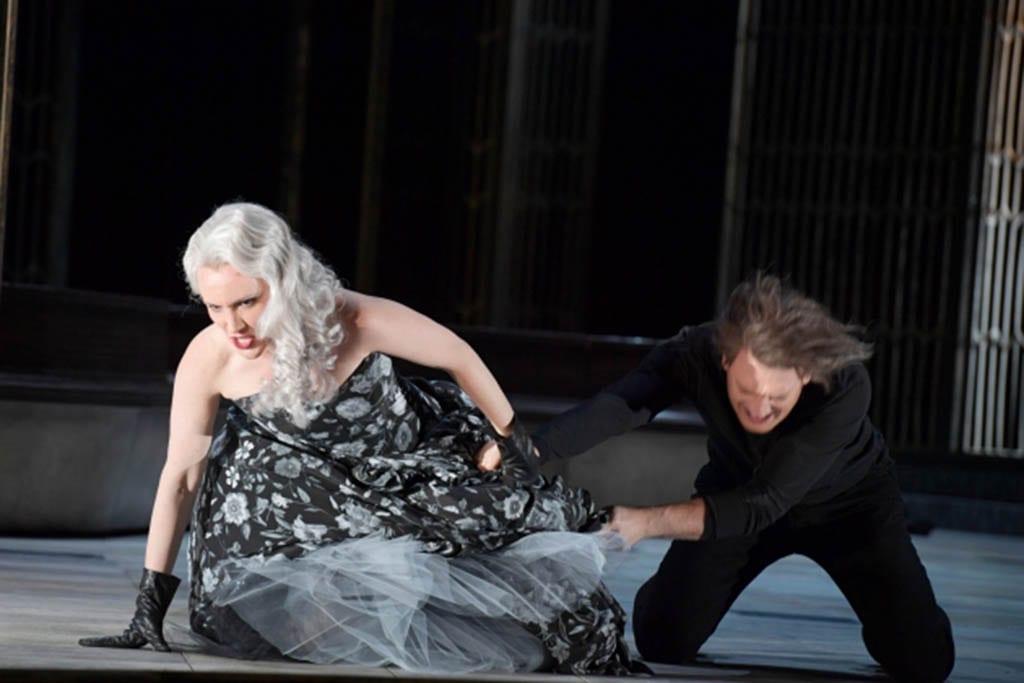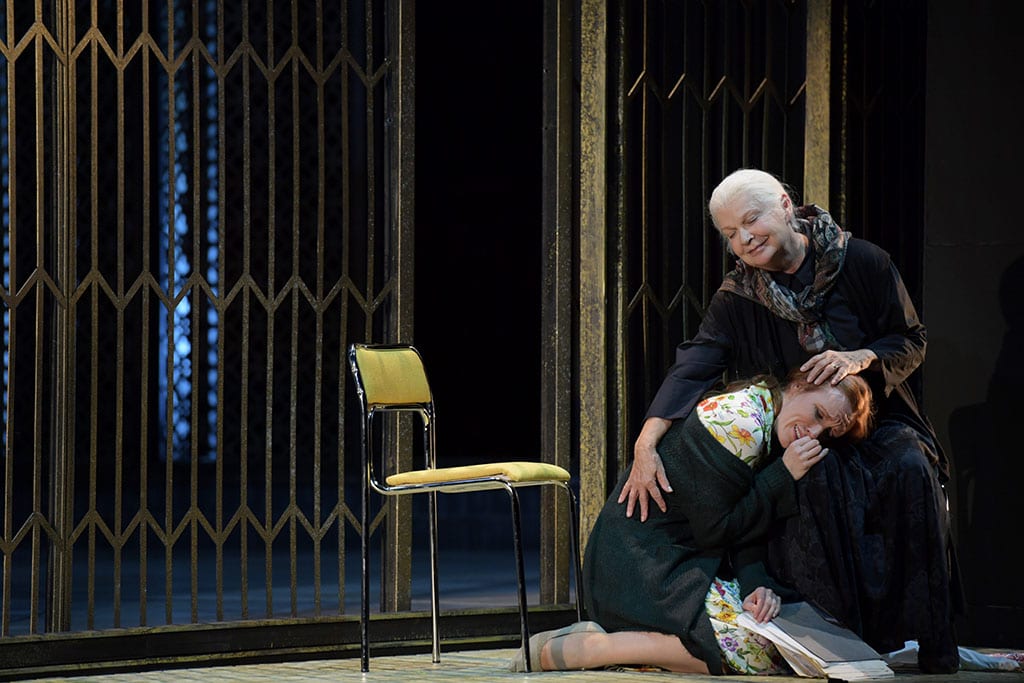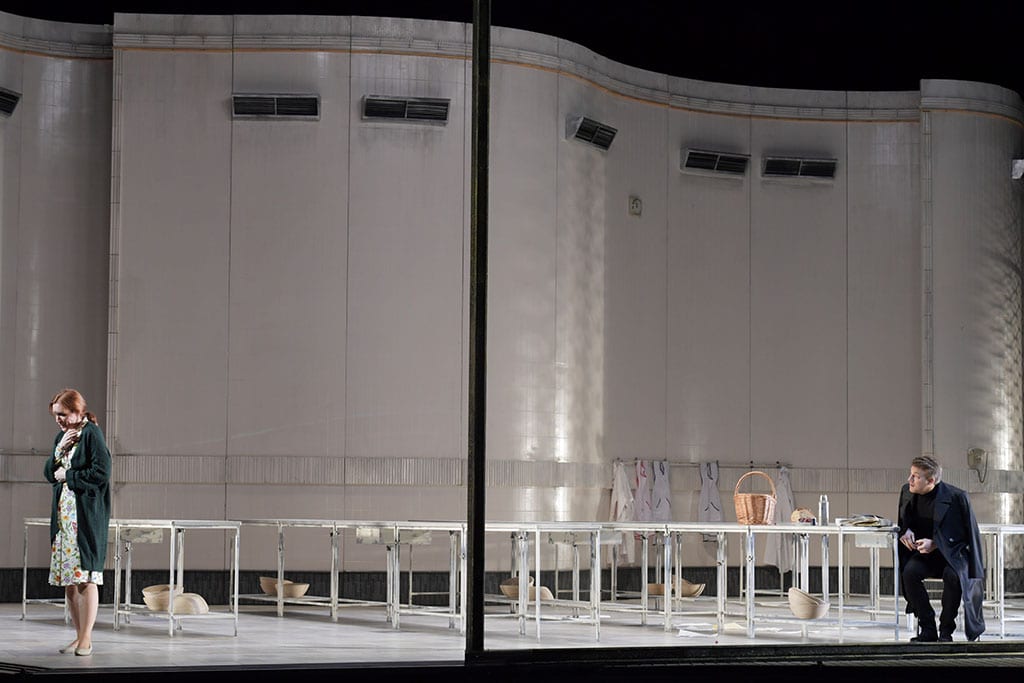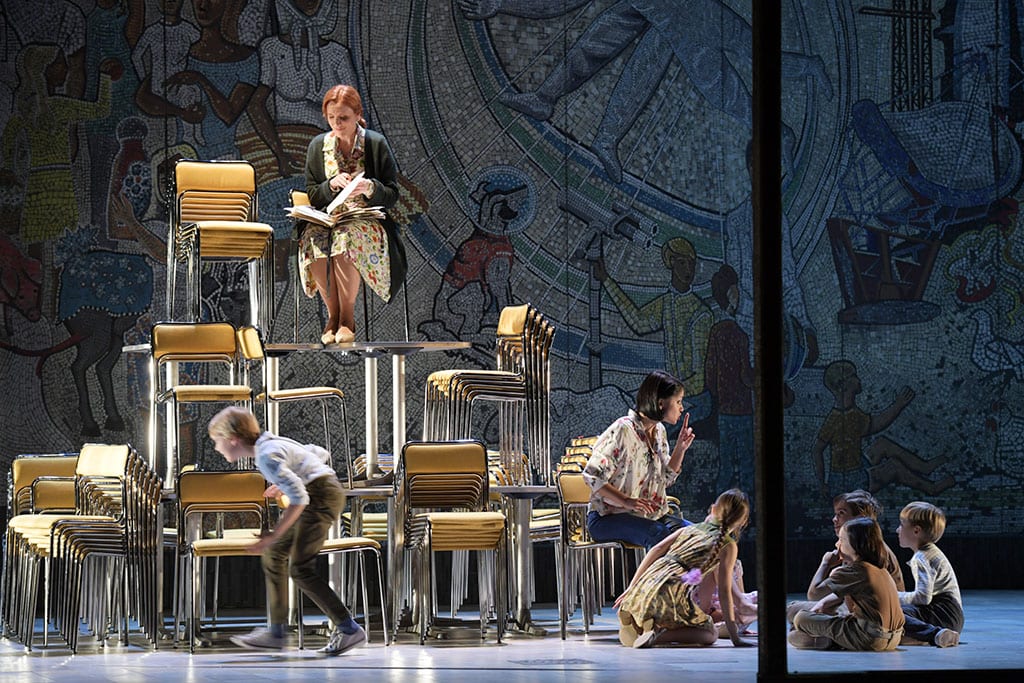Love is a fickle thing, always striking too late or too soon. In Tchaikovsky’s Eugen Onegin, love hits too soon, too late, and too uncertainly for sisters Olga (Judita Nagyová) and Tatiana (Sara Jakubiak) and their neighbors, good friends Lenski (Mario Chang) and Eugen Onegin (Daniel Schmutzhard). Dreaming her days away in her quiet home, Tatiana is lost in her novel of love stories and romance. Her more flirtatious, down to earth sister rejects such notions but has already found her love in friend and poet Lenski. When Lenski brings his good friend Onegin for a visit, Tatiana pictures herself in love with the mysterious, cynical neighbor. Onegin’s cold rejection of Tatiana’s love and Olga’s subsequent flirtations lead to death, despair, and mistimed love.
The most impressive quality of Oper Frankfurt’s new production of the Russian opera is the visually stunning nature of its rotating sets literally caged in by an imposing gate and divided by a wall that is on one side a Soviet mosaic and the other a sterile work room. The first two acts focus more on elegance, with tiled mosaics, decadent ball rooms, and abstract school chair pyramids. After the interval, the mood and the dynamics of the set are completely altered, sharp lines of wooden benches the only color against the blackness of the stage which is heightened in contrast to the framing lines of the gate, all of which intensify the art deco Gothicism of the black and white wardrobes and ornate dress. Fortunately, the elegance, passion, and drama of the performances fit into these tableaus, bringing the opera a twisted, modern pathos. Olga is the immediate draw upon the opening, her flirtatious charm and deep voice draw attention away from Tatiana and Lenksi is devastating in his solo late night struggle over the impending duel with his friend. In fact, Lenksi’s solo is how I know that it is truly unfortunate that Chang’s soulful voice is muted and hard to hear in the rest of the production. Despite these highs, the first act rings a bit shallow, albeit fun. The beauty of the sets, the dynamics of the nitpicking mother, Larina (Barbara Zechmeister) and world weary elderly nurse, Filipjewna (Elena Zilio) are engaging, but Olga’s less than convincing despair over her lover’s anger and the lack of chemistry between Onegin and Tatiana leave the dramatic heavy lifting to the boys’ relationship, as we watch a true friendship die because of misunderstandings and pride.
It is after the interval that our leading couple, Onegin and Tatiana, truly begin to shine. No longer the handsome, aloof man from the first two acts, Onegin’s animalistic desperation for the Tatiana’s love reverberates. However, it is the new-found strength and power in Tatiana’s voice and physicality, a transformed woman, which steals the show. Her figure is statuesque in her mournful ball gown and her face drawn and harsh against her newly white hair. The pathos and love she sings of are more grounded than the flighty devastations of the earlier Tatiana, proving darkness is much more engaging than light.
Eugen Onegin ist ein russiche Oper von Tschaikowski. Schwesterinnen Olga und Tatiana wohnen mit ihren Mutter. Tatiana liebe ihre Liebegesichte während Olga kokett ist. Ihre Nachbarn und Olgas Freund, Lenksi, besucht sie und bringt seiner Freund, Eugen Onegin, mit. Tatiana glaubt sich verliebt, aber Onegin lehnt sie ab. Danach, an Tatianas Geburtstagfeier, Olga und Onegin flirten und ärgern Lenski, wer Onegin zum Duell fordert.




